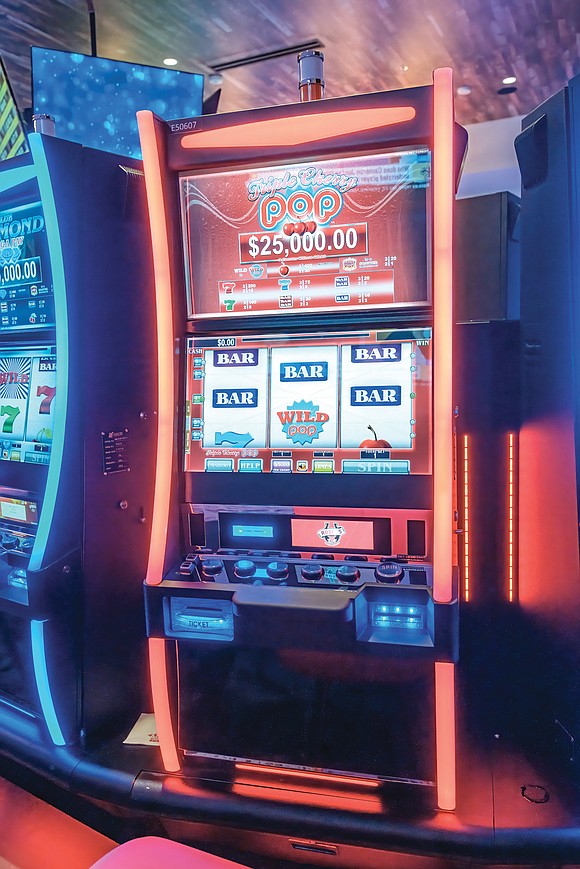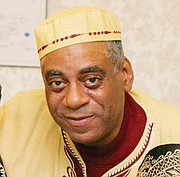Slot machine-style ‘skill games’ end July 1, taking away some people’s ‘joy’
Jeremy M. Lazarus | 7/1/2021, 6 p.m.
James E. Henson is not going to wear black.
But he will join in mourning the loss of the so-called “gray machines” that are on the way out of convenience stores, truck stops and a host of other retail establishments with Virginia ABC licenses to sell beer, wine and other alcoholic beverages.
Effective Thursday, July 1, the slot machine-style games will no longer be legal to operate in Virginia, and the Alcoholic Beverage Control Department and its board is promising to crack down on any licensed establishment that does not get rid of them.
The machines, known as “gray machines” for skirting the state’s still viable anti-gambling laws, began popping up about three years ago. And despite a huge state tax, the machines have helped numerous small retail outlets financially weather the pandemic.
Various companies put thousands of the “skill” games in convenience stores in the state. The machines were modified to require an extra press of the button to operate. That apparently was enough to prevent the ABC from initially deeming them illegal.
Like many, Mr. Henson, 62, is upset.
He cannot understand why the state is pulling the plug on these machines at the same time elected leaders enthusiastically have given the green light to sports betting, casino gambling, horse race wagering as well as a state-run lottery.
“Why is everything else legal and something like this—that was popular with ordinary Joes—is not,” he said, echoing comments heard widely from patrons who played the machines. “The people who play aren’t bothering anyone. Why is this so bad?”
The owner and operator of a Downtown printing business, Mr. Henson said he enjoyed being able to go to different locations in Richmond to try his luck at what he called his “part-time job.”
Also the longtime leader of a basketball ministry that has been shut down during the pandemic like many indoor programs, Mr. Henson said he found playing the machines a great stress reliever.
Playing, he said, also enabled him to meet and make friends with people “I never would have had a connection with otherwise.”
He said the machines, on which he said he was a frequent winner, also provided a better return compared to results from playing the Virginia Lottery or buying scratch tickets.
While Rosie’s Gaming Emporium in South Richmond also offers legal slot machines, Mr. Henson said he was put off by the crowds and lines there and preferred the neighborhood places that involved gatherings of small numbers of congenial people.
In 2020, the General Assembly was poised to outlaw the machines, but bent to Gov. Ralph S. Northam’s suggestion to allow them for one year. The governor also won support for imposing a hefty $1,200-a-month tax on each machine to raise money to cover expenses related to COVID-19.
The tax raised $150 million in the 2020-21 fiscal year, the state reported. But that was not enough to halt the death sentence for the machines.
Both the governor and state legislature, with little explanation, refused to approve any extension for their continued use, even though gambling has become a favorite way for the state to raise new tax revenue.
The decision to force removal of the machines is a big deal primarily for independent convenience stores. As sales of gasoline, candy, crackers and other items have sagged as people stayed home since the March 2020 start of the pandemic in the state, some stores found the returns from the machines, even with the tax, enough to keep their doors open.
Several operators said the loss of the machines would force them into bankruptcy because their regular operations do not generate enough revenue.
“Hundreds of convenience store employees are going to lose their jobs and a lot of us will go out of business. These machines were a life preserver for our businesses, and now we have to sink or swim without them,” said one owner, who requested anonymity.
The prohibition already has drawn a long-shot lawsuit and a cry of discrimination from Asian-American store operators, though legal experts believe there is little likelihood of any legal challenge having much success.
State leaders, who heard such arguments while considering whether to extend the legality of the machines, have been adamant that these machines are to go.
“Just when we had something we could enjoy,” Mr. Henson said, “poof, it’s gone.”









